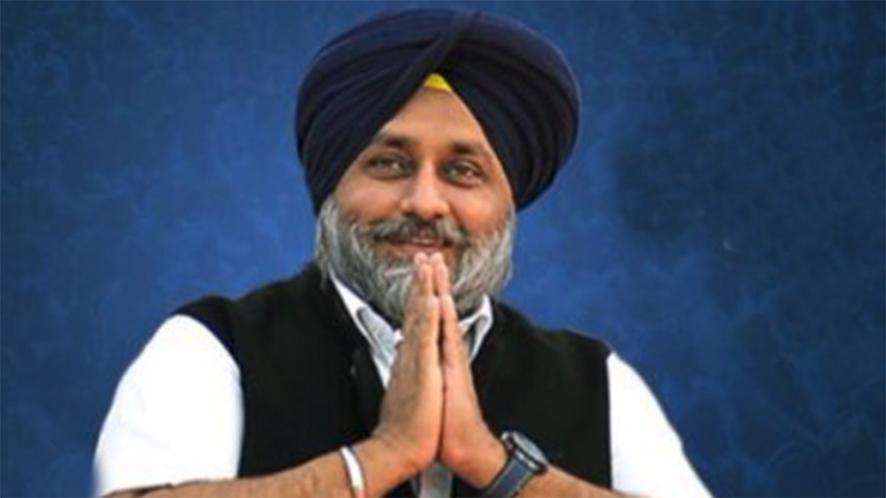Chandigarh: The Shiromani Akali Dal (SAD) working committee on Friday accepted Sukhbir Singh Badal’s resignation as party chief, days after the Akal Takht Jathedar asked it to implement the religious body’s December 2 edict as soon as possible.
With the acceptance of his resignation paving the way for the election of a new party chief, the working committee also announced to start a new membership drive January 20 and hold the election for the post of new president March 1.
Akal Takht Jathedar Giani Raghbir Singh January 6 had asked SAD to implement the edict at the earliest while referring to the direction of accepting the resignation of Badal as party chief.
While pronouncing religious punishment for Badal and other leaders December 2 last year for the “mistakes” committed by SAD and its government in Punjab from 2007 to 2017, the Akal Takht had also directed SAD’s working committee to accept the resignation of Badal as party chief and other leaders.
Though Badal underwent religious punishment, the working committee did not accept his resignation, which he had tendered in November last year.
Speaking to reporters after his resignation was accepted Friday, Badal thanked party workers and leaders for their support.
“Five years back, the SAD delegate session gave me the big responsibility of serving the Akali Dal. In the last five years, I did whatever I could do for the party. I thank workers and leaders who supported me.
“Now five years have passed. When I was to go to the Akal Takht Sahib, I had made up my mind to go as a humble Sikh. But it (my resignation) was not accepted due to some reasons. The working committee should start a new membership drive and thereafter, a new president can be elected,” he said.
Badal had tendered his resignation as the party chief November 16 last year but the party’s working committee did not accept his resignation then, appealing him to reconsider his resignation otherwise the entire committee would resign en masse.
Addressing the media here Friday, senior SAD leader Daljit Singh Cheema said Badal himself attended the meeting as his resignation was pending.
He had requested that his resignation should be accepted, said Cheema.
“At his request, the working committee accepted his resignation,” said Cheema, announcing to commence the party’s new membership drive from January 20 which will continue till February 20.
SAD working president Balwinder Singh Bhundar has been authorised to take major decisions for the party during the membership drive and elections, Cheema said.
He said a target of making 25 lakh members of the party during the drive has been set. An election for the post of party president will be held March 1, he further said.
On January 8, a delegation of SAD met the Akal Takht Jathedar in Amritsar, apprising him of the legal hurdles being faced by the party in implementing his directive to form a seven-member committee for holding organisational elections of the party.
SAD had earlier informed the Jathedar that reorganisation of the party through the seven-member committee formed by the Akal Takht might lead to losing its recognition from the Election Commission of India as a political party should run in a secular manner and not according to directions of a religious body.
In its edict December 2, the Akal Takht had formed a seven-member committee to start the membership drive and hold the elections for the post of party president and other office-bearers within six months.
Badal was declared ‘tankhaiya’ (guilty of religious misconduct) by the Akal Takht, the highest temporal seat of Sikhs, August 30 last year. He had undergone religious punishment.
Badal, the former deputy chief minister, was the youngest chief of SAD, when he was elevated to the post in 2008.
He was often credited for the party’s victory in the 2012 assembly polls. But his leadership came under scanner by his own party leaders after SAD could win just 15 of the 117 seats in 2017 and was finally relegated to three seats in the 2022 polls.
In the 2024 Lok Sabha polls, it could win only one seat out of the 13 parliamentary constituencies.
PTI
